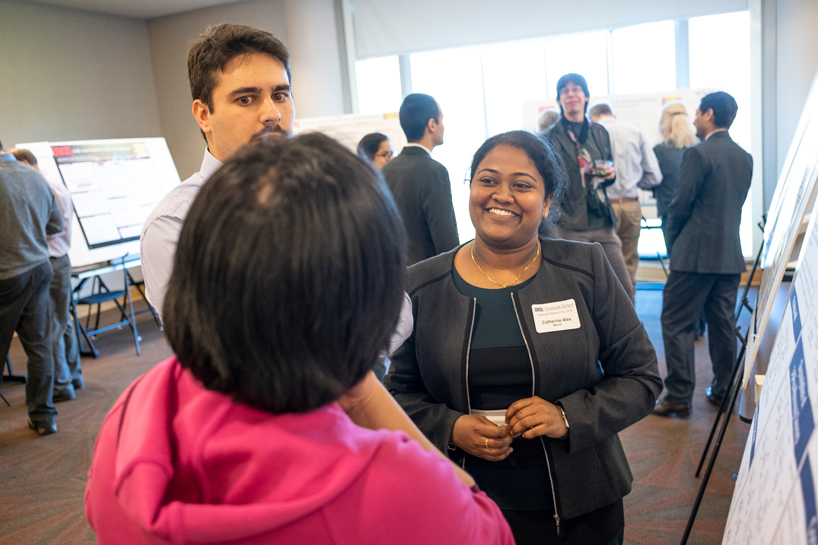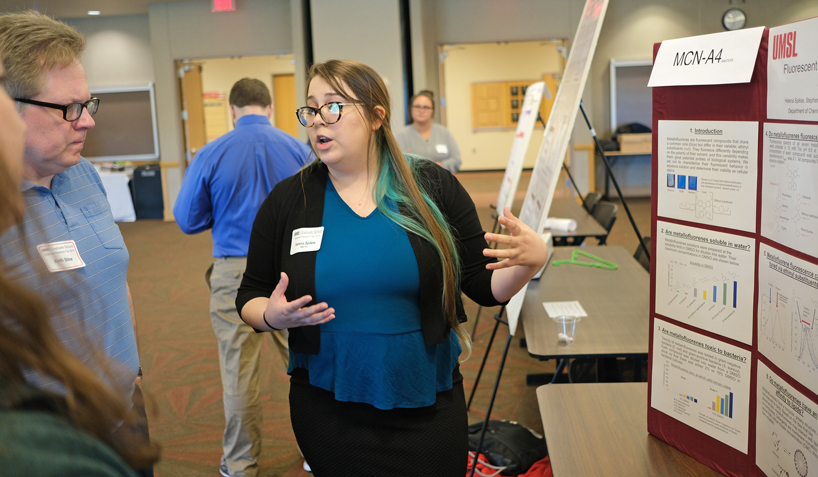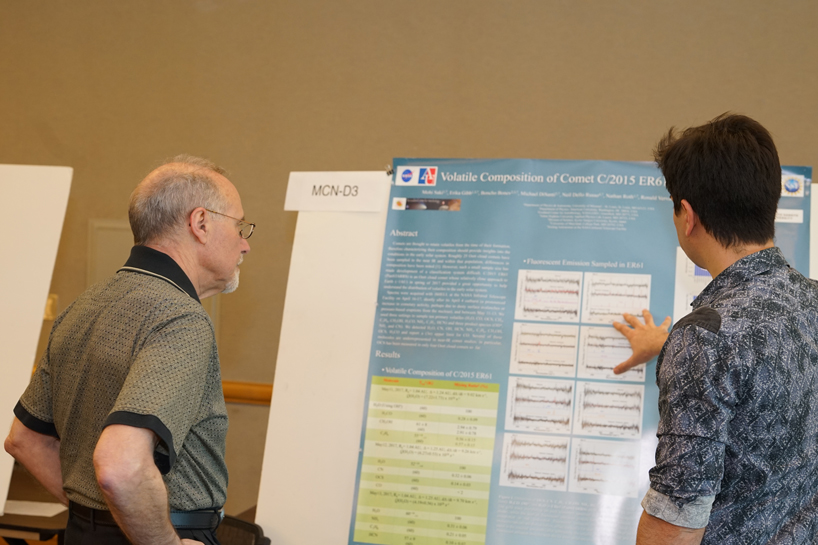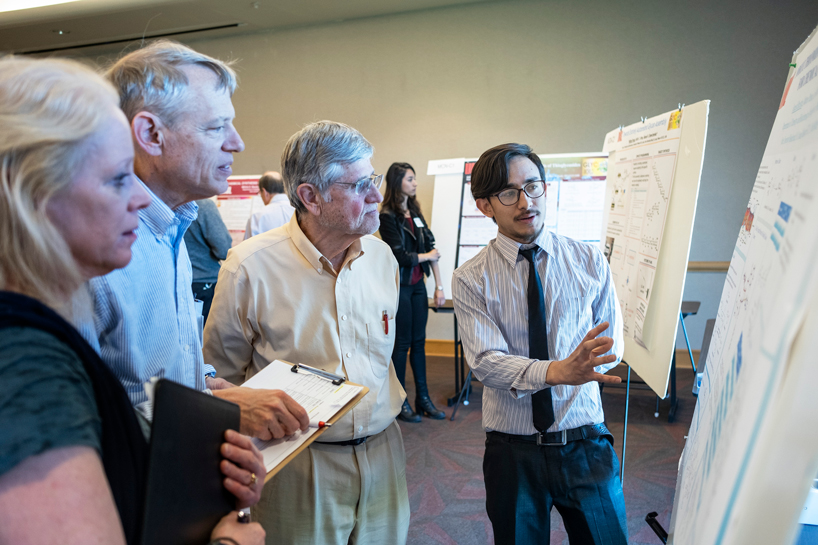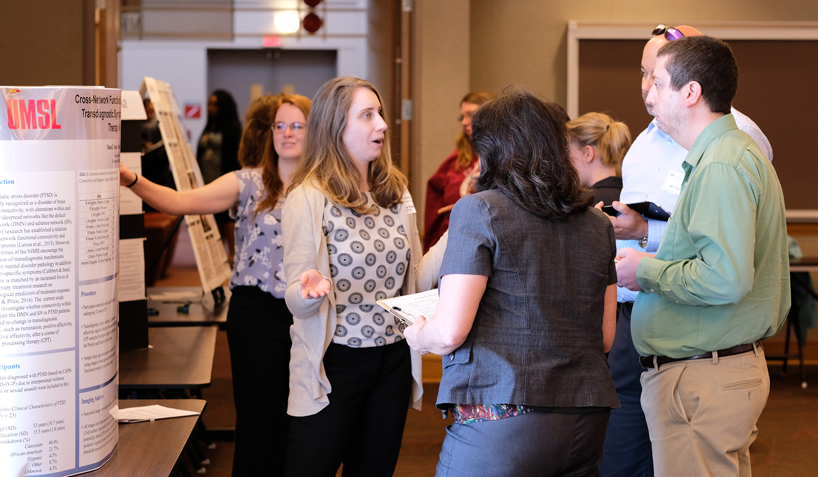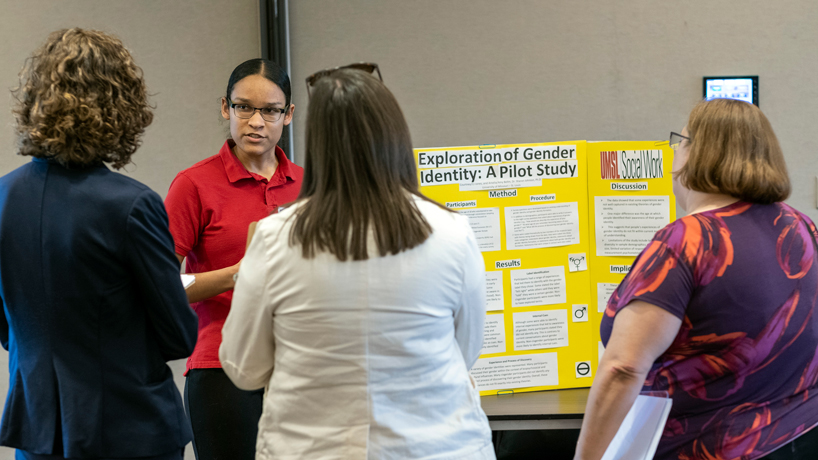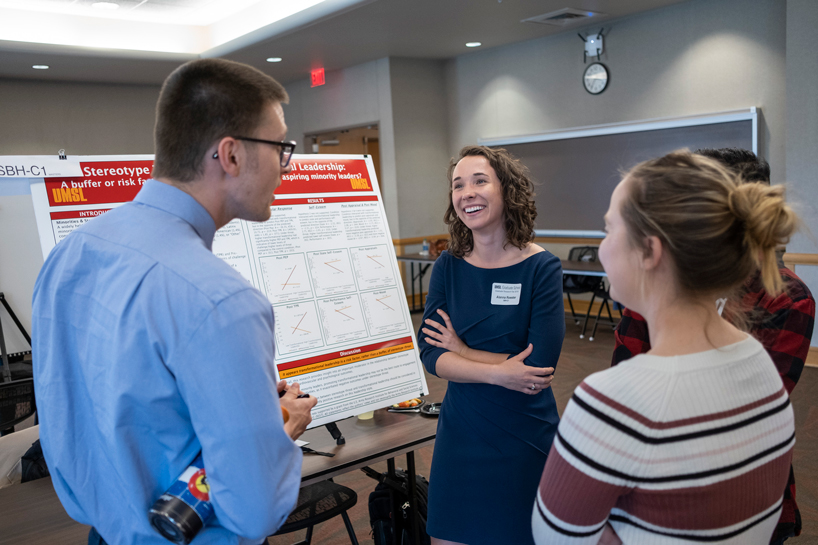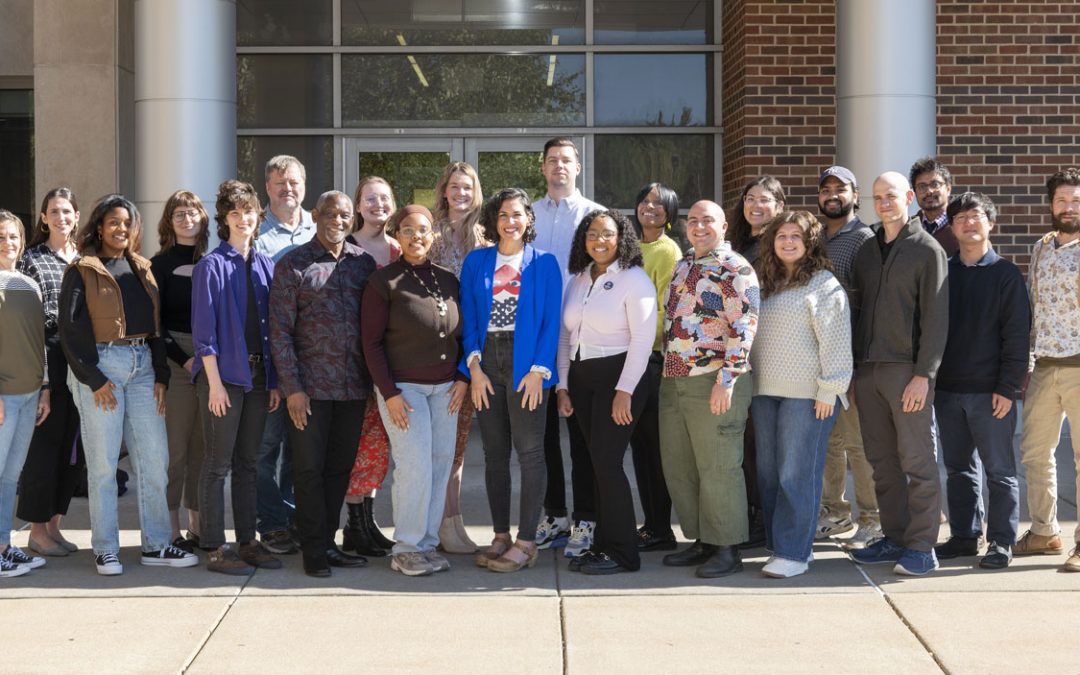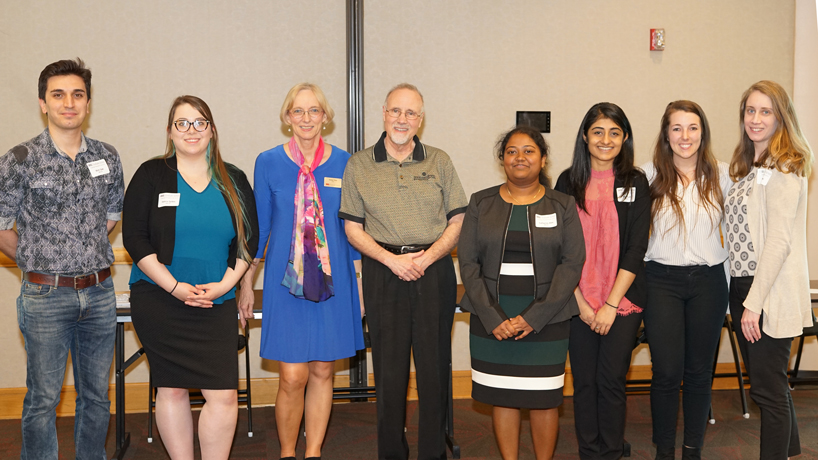
Graduate School Dean Teresa Thiel (third from left) and Chancellor Tom George (fourth from left) presented awards to graduate students (from left) Mohi Saki, Helena Spikes, Catherine Alex, Kruti Surti, Melinda Kittleman and Tessa Vuper during the annual Graduate Research Fair on April 12 at the Millennium Student Center. (Photo courtesy of Jim O’Brien)
The University of Missouri–St. Louis held its annual Graduate Research Fair on April 12 in the Century Rooms of the Millennium Student Center.
The fair was an opportunity for graduate students from all degree programs to display the research they have been working on throughout their time at UMSL. More than 30 students participated, getting a chance to share their work with fellow students and faculty members.
The presentations were divided into categories for natural sciences and social and behavioral sciences with three winners chosen in each category.
Chemistry student Catherine Alex won first place in the natural sciences category for a project titled “Sterocontrolled Monosyllation by Hydrogren Bond Mediated Agylcone Delivery.” Chemistry student Helena Spikes placed second with a project titled “Fluorescent Analysis of Metallofluorenes in Biological Systems,” while physics PhD student Mohi Saki took third for his project “Volatile Composition of Comet C/2015 ER61.”
In the social and behavioral sciences category, top prize went to psychology student Tessa Vuper for a project titled “Cross-Network Functional Connectivity Predicts Change in Transdiagnostic Symptoms.” Psychology student Melinda Kittleman took second for “Perceived Pervasiveness of Sexism Predicts Greater Avoidance Motivation after Experiencing Sexism,” while psychology PhD student Kruti Surti was third for a project titled “Up-regulation of love and positive emotions: ERP study.”
Campus photographer August Jennewein and Chemistry and Biochemistry Professor Jim O’Brien were on hand and captured scenes from the fair.
Alex (at right) answered questions about her research in Professor Alexei Demchenko’s lab on the application of the H-bond mediated aglycone delivery method to the stereoselective synthesis of a type of carbohydrate molecule known as an oligosaccharide.
Spikes, a member of Cynthia Dupureur’s lab, spoke to Professor Keith Stine (left) about her research on Group 14 metallofluorenes, polycyclic fluorescent compounds with a central atom made of either silicon or germanium.
Saki talked to Chancellor Tom George about his research on comets and the volatile substances they retain from the time of their formation, which could provide insight into the conditions in the early solar system.
Chemistry PhD student Ganesh Shrestha (at right) explained his research on “Indolyl Thioimidates As New Building Blocks for Chemical Glycosylation.”
Vuper described her study, which aimed to investigate whether connectivity within and between the default mode network and salience network in post-traumatic stress disorder patients was related to change in transdiagnostic processes such as rumination, positive affectivity and negative affectivity.
Graduate student C.J. Jones presented results from a pilot study exploring gender identity.
Graduate student Alanna Roesler talked about her research project on “Stereotype Threat and Transformational Leadership: A buffer or risk factor for negative outcomes among aspiring minority leaders?”

